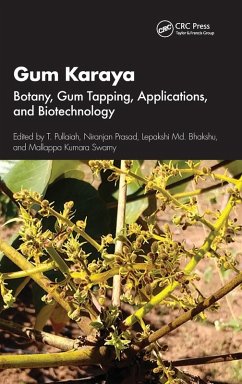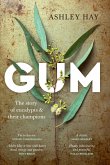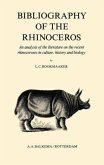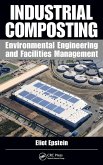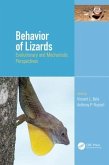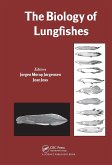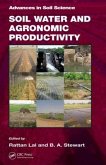Gum Karaya
Botany, Gum Tapping, Applications, and Biotechnology
Herausgeber: Pullaiah, T.; Md. Bhakshu, L.; Prasad, Niranjan
Gum Karaya
Botany, Gum Tapping, Applications, and Biotechnology
Herausgeber: Pullaiah, T.; Md. Bhakshu, L.; Prasad, Niranjan
- Gebundenes Buch
- Merkliste
- Auf die Merkliste
- Bewerten Bewerten
- Teilen
- Produkt teilen
- Produkterinnerung
- Produkterinnerung
Polysaccharide gums have a wide range of applications due to their hydrophilic properties. They have been used as a gelling agent, encapsulating agent, thickener, emulsifier, and stabilizer. Sourcing natural gums from botanical and plant sources has become an important focus to produce acceptable food ingredients in liquids forms.
Andere Kunden interessierten sich auch für
![Gum Gum]() Ashley HayGum32,99 €
Ashley HayGum32,99 €![Bibliography of the Rhinoceros Bibliography of the Rhinoceros]() L. C. RookmaakerBibliography of the Rhinoceros327,99 €
L. C. RookmaakerBibliography of the Rhinoceros327,99 €![Industrial Composting Industrial Composting]() Eliot EpsteinIndustrial Composting202,99 €
Eliot EpsteinIndustrial Composting202,99 €![Behavior of Lizards Behavior of Lizards]() Behavior of Lizards308,99 €
Behavior of Lizards308,99 €![The Biology of Lungfishes The Biology of Lungfishes]() The Biology of Lungfishes253,99 €
The Biology of Lungfishes253,99 €![Gas Mixtures Gas Mixtures]() Gary NelsonGas Mixtures63,99 €
Gary NelsonGas Mixtures63,99 €![Soil Water and Agronomic Productivity Soil Water and Agronomic Productivity]() Soil Water and Agronomic Productivity230,99 €
Soil Water and Agronomic Productivity230,99 €-
-
-
Polysaccharide gums have a wide range of applications due to their hydrophilic properties. They have been used as a gelling agent, encapsulating agent, thickener, emulsifier, and stabilizer. Sourcing natural gums from botanical and plant sources has become an important focus to produce acceptable food ingredients in liquids forms.
Hinweis: Dieser Artikel kann nur an eine deutsche Lieferadresse ausgeliefert werden.
Hinweis: Dieser Artikel kann nur an eine deutsche Lieferadresse ausgeliefert werden.
Produktdetails
- Produktdetails
- Verlag: CRC Press
- Seitenzahl: 194
- Erscheinungstermin: 27. August 2024
- Englisch
- Abmessung: 240mm x 161mm x 15mm
- Gewicht: 461g
- ISBN-13: 9781032573434
- ISBN-10: 1032573430
- Artikelnr.: 70147965
- Herstellerkennzeichnung
- Libri GmbH
- Europaallee 1
- 36244 Bad Hersfeld
- gpsr@libri.de
- Verlag: CRC Press
- Seitenzahl: 194
- Erscheinungstermin: 27. August 2024
- Englisch
- Abmessung: 240mm x 161mm x 15mm
- Gewicht: 461g
- ISBN-13: 9781032573434
- ISBN-10: 1032573430
- Artikelnr.: 70147965
- Herstellerkennzeichnung
- Libri GmbH
- Europaallee 1
- 36244 Bad Hersfeld
- gpsr@libri.de
Prof. T. Pullaiah obtained his MSc and PhD degrees in Botany from Andhra University. He was post-doctoral fellow at Moscow State University, Russia, during 1976-1978. He travelled widely in Europe and America and visted universities and botanical gardens in about 17 countries. He joined Sri Krishnadevaraya University as a lecturer in 1979 and became a professor in 1993. He has held several positions at the university, including dean, faculty of biosciences, head of the Department of Botany, head of the Department of Biotechnology, and member of the Academic Senate. He was the president of the Indian Botanical Society (2014), the president of the Indian Association for Angiosperm Taxonomy (2013), and a fellow of the Andhra Pradesh Academy of Sciences. Under his guidance, 54 students obtained their doctoral degrees. He has authored 70 books, edited 40 books, and published over 340 research papers. His books have been published by reputed international publishers like CRC Press, Springer, Elsevier, Wiley Blackwell, Apple Academic Press, etc. He was also a member of the Species Survival Commission of the International Union for Conservation of Nature (IUCN). Dr Niranjan Prasad did his BE (agricultural engineering) from CTAE, Udaipur (1988) and MTech. (1991) and PhD from IIT, Kharagpur (1996). He obtained his post-doctoral training in smart/active packaging from Michigan State University, USA. He worked as lecturer at NERIST, Nirjuli, Arunachal Pradesh, during 1996-1997. Later, he joined Indian Lac Research Institute, Ranchi, as agricultural research service scientist in 1997 and presently works as principal scientist and the head of Agri Bio-resources Augmentation Division at ICAR-National Institute of Secondary Agriculture, Ranchi, India. He is also working as project coordinator of the All India Network Project on Harvesting Processing and Value Addition of Natural Resins and Gums. He worked as consortium principal investigator of the National Agricultural Innovation Project (World Bank) on Lac Value Chain. During his 28 years of experience in research and extension, he published 65 research papers in national and international journals. He has developed several tools and machines for lac cultivation and processing which have been commercialized. Dr Prasad is a member of several professional societies. He is the recipient of many awards, namely, the ISAE Jain Irrigation Award (1987-1988); DST SERC Visiting Fellowship (1999); ISAE Distinguished Service Certificate (2002-2003); IINRG Ranchi Certificate of Merit (2004-2009); ISAE Commendation Medal 2008-2009; Bioved, Allahabad Fellowship 2012; Fellow of ISAE (2019), and David Foundation Award (2020). Dr Prasad was also nominated as a member of the Institute Management Committee of ICAR-CIPHET, Ludhiana; ICAR-CIAE, Bhopal; ICAR-NIRJAFT, Kolkata; and ICAR-IASRI, New Delhi. Dr Lepakshi Md. Bhakshu completed his master's degree in Botany (1998) from Sri Venkateswara University, Tirupati, and PhD in Botany (2002) from Sri Krishnadevaraya University, Anathapuramu. He has 15 years of teaching and 20 years of research experience in ethnobotany, ethnopharmacology, phytochemical studies, and biodiversity conservation. He has published 24 research publications in national and international journals, presented 8 research papers in international and national conferences, and participated in 20 national and international symposia besides writing 20 book chapters. He received the two best posters in the national-level symposium. He worked as a project fellow at EPTRI, Hyderabad, and a co-author of the Proceedings of the National Seminar on the Conservation of Eastern Ghats, published by the EPTRI, Hyderabad. He is the recipient of post-doctoral fellowship and is a Dr DS Kothari national fellow (UGC) at the University of Hyderabad, Telangana. Presently, he is working as an assistant professor at the Department of Botany, Dr YSR Government Degree College, Vedukuppam, Chittoor (Dt), Andhra Pradesh, India. Dr Mallappa Kumara Swamy is a professor and the head of the Department of Biotechnology at East West First Grade College, Bengaluru, India. He completed his post-doctoral research at the Department of Crop Science, Faculty of Agriculture, University Putra Malaysia (UPM), Serdang, Malaysia. Before that, he had worked as an associate professor and the head of the Department of Biotechnology, Padmashree Institute of Management and Sciences, Bangalore University, Bengaluru, India. He received his PhD (biotechnology) from Acharya Nagarjuna University, Guntur, India, in 2013. He has more than 17 years of teaching and research experience in the fields of plant biotechnology, secondary metabolite production, phytochemistry, and bioactive studies. Dr Swamy has authored 65 research publications in peer-reviewed journals and 68 book chapters. Recently, he has edited 12 books published by Springer Nature Singapore Pvt. Ltd., Singapore; 1 book by CRC Press LCC, USA; 1 book by Studium Press Pvt. Ltd., India; and 1 edited book volume by Elsevier, USA. He also served as an editorial board member and reviewer for several high-impact factor international journals. His current research is focused on cell and tissue culture technology, phytochemistry, phytocompounds isolation, production and their biological evaluation, and nanotechnology for medical applications.
Chapter 1. Gum Karaya - The Green Gold
Chapter 2. Botany of Gum Karaya Yielding species
Chapter 3. Gum Karaya Production and Processing
Chapter 4. Pharmacognosy of Sterculia urens and allied species
Chapter 5. Phytochemistry of Gum Karaya and Sterculia urens Roxb. and its
allied Taxa
Chapter 6. Traditional uses, Pharmacology and Industrial applications of
Gum Karaya
Chapter 7. Propagation of Sterculia urens and other species of Sterculia
Chapter 8. In vitro Propagation of Sterculia species
Chapter 9. Assessment of Genetic Diversity in Sterculia species Using
Molecular Studies
Chapter 10. Trade and Commerce of Gum Karaya
Chapter 11. Gum Karaya - Threats and Conservation
Chapter 12. Gum Karaya and Peoples Livelihood
Chapter 2. Botany of Gum Karaya Yielding species
Chapter 3. Gum Karaya Production and Processing
Chapter 4. Pharmacognosy of Sterculia urens and allied species
Chapter 5. Phytochemistry of Gum Karaya and Sterculia urens Roxb. and its
allied Taxa
Chapter 6. Traditional uses, Pharmacology and Industrial applications of
Gum Karaya
Chapter 7. Propagation of Sterculia urens and other species of Sterculia
Chapter 8. In vitro Propagation of Sterculia species
Chapter 9. Assessment of Genetic Diversity in Sterculia species Using
Molecular Studies
Chapter 10. Trade and Commerce of Gum Karaya
Chapter 11. Gum Karaya - Threats and Conservation
Chapter 12. Gum Karaya and Peoples Livelihood
Chapter 1. Gum Karaya - The Green Gold
Chapter 2. Botany of Gum Karaya Yielding species
Chapter 3. Gum Karaya Production and Processing
Chapter 4. Pharmacognosy of Sterculia urens and allied species
Chapter 5. Phytochemistry of Gum Karaya and Sterculia urens Roxb. and its
allied Taxa
Chapter 6. Traditional uses, Pharmacology and Industrial applications of
Gum Karaya
Chapter 7. Propagation of Sterculia urens and other species of Sterculia
Chapter 8. In vitro Propagation of Sterculia species
Chapter 9. Assessment of Genetic Diversity in Sterculia species Using
Molecular Studies
Chapter 10. Trade and Commerce of Gum Karaya
Chapter 11. Gum Karaya - Threats and Conservation
Chapter 12. Gum Karaya and Peoples Livelihood
Chapter 2. Botany of Gum Karaya Yielding species
Chapter 3. Gum Karaya Production and Processing
Chapter 4. Pharmacognosy of Sterculia urens and allied species
Chapter 5. Phytochemistry of Gum Karaya and Sterculia urens Roxb. and its
allied Taxa
Chapter 6. Traditional uses, Pharmacology and Industrial applications of
Gum Karaya
Chapter 7. Propagation of Sterculia urens and other species of Sterculia
Chapter 8. In vitro Propagation of Sterculia species
Chapter 9. Assessment of Genetic Diversity in Sterculia species Using
Molecular Studies
Chapter 10. Trade and Commerce of Gum Karaya
Chapter 11. Gum Karaya - Threats and Conservation
Chapter 12. Gum Karaya and Peoples Livelihood

